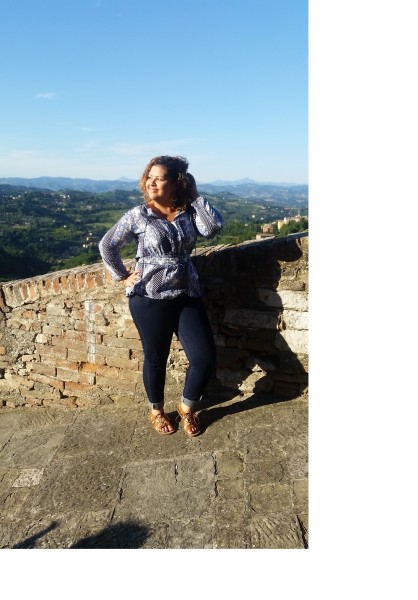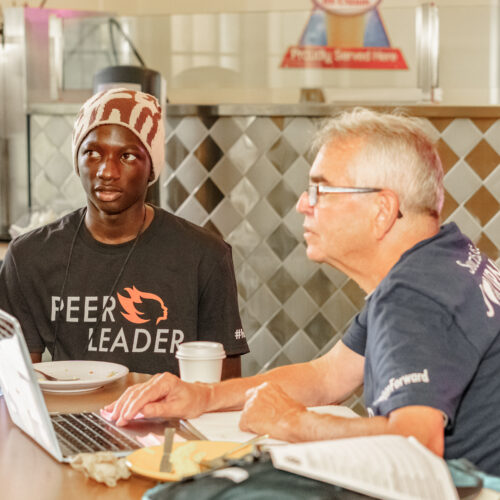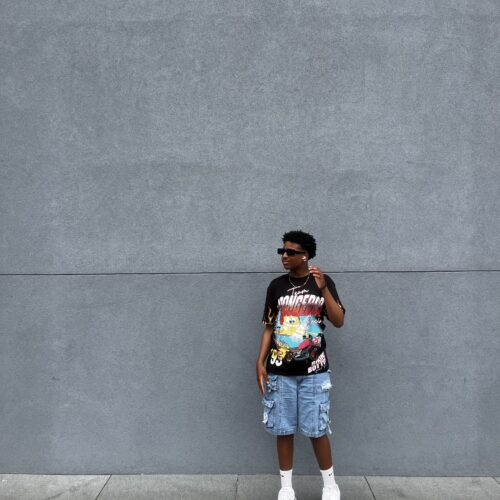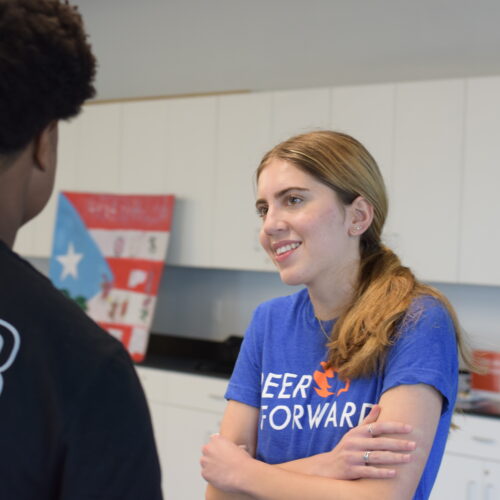 PeerForward alumni have followed many career paths and found much success. Here, Melanie Gonzalez shares her journey.
PeerForward alumni have followed many career paths and found much success. Here, Melanie Gonzalez shares her journey.
When did you become a Peer Leader? What was your summer workshop experience like?
I became a part of PeerForward in my junior year of high school, through the college seminar offered at my school. It was through this course that I learned a little more about what PeerForward does and how else I could become involved. I applied to become a Peer Leader later that year, and after a series of interviews I was fortunate enough to be selected. I did my Peer Leader workshop at Monmouth University in the summer of 2011. Prior to my workshop, I had never been on a college campus, let alone stayed at one, so for me it felt like I was getting a glimpse of what my future college experience could potentially be. What stood out to me the most was the comradery and the sense of family that felt. Here I was in a room full of individuals I never knew of before and yet I felt more at home than I ever had in my life. Opening up in the Rap Sessions and connecting with new people was a bit intimidating initially, only because I’m naturally a very shy person, but the community that was developed and the good vibes that I felt allowed me to feel confident enough to be myself without the fear of judgment. The biggest stepping stone that I overcame was acknowledging what I personally felt about myself, my life and my goals. I came to the realization that I am the only one who has the ability to change my life for the better.
How did PeerForward help you to prepare for college and influence your college experience?
PeerForward prepared me for college immensely. Components like my personal statement and financial aid forms felt like a burden – but with the help I received, I felt like it was possible for me to successfully navigate through the process. I was accepted not only to my first choice college but to multiple colleges. To top it off every college offered me a scholarship. This would not have happened without PeerForward. By the time I was actually going to college, I knew that I owed it to myself to use the information I had learned to better myself and my future.
What obstacles or challenges did you have to overcome in order to get to college?
The biggest obstacle I had to overcome was understanding that I am not just a number. By this I mean that many (not all) but many colleges recruit their perspective students by placing a number on them and allowing their SAT’s to determine their acceptance. I was never a good test taker and I’m still not — so for me standardized testing was incredibly intimating. No matter how many SAT prep books I studied or how many Saturday’s I gave up in prep courses, I just felt that I was never going to be prepared enough. I just kept thinking that without a score that would make me stand out amongst all the other students, I didn’t have a chance. It really took a toll on my self-esteem. PeerForward helped me see that not every college is going to be a fit for me. I learned I had to utilize my strengths to get me where I wanted to go instead of dwelling on my weaknesses. I used all my leadership roles, academic work, and extracurricular activities to convince the colleges I was applying to why I deserved to be accepted and at the end of the day, that is what worked for me. A number will never define me!
How did you and your fellow Peer Leaders help create a college-going culture?
My Peer Leader team and I helped to foster a college-going culture by planning a series of events throughout the school year that were all PeerForward themed, and most importantly utilized the college knowledge we gained at our workshop. We hosted various kick- off events in the auditorium where we gathered all students (freshman, sophomore, juniors, and seniors) to inform them about what steps they can take while still in high school to reach their college goals and motivate them to take action. We also led FASFA workshops where we explained the components of financial aid and discussed the necessary documents students and parents needed to complete to their FAFSA and submit it on time. We also utilized PeerForward materials, such as posters and pamphlets, so that students would be constantly reminded of college and FAFSA as they walk through the halls. Lastly, we always made sure to have a strong presence within the school and work with faculty to promote a college-going culture.
What campus activities are you currently involved in?
I have continued my role as a Peer Leader and am currently co-teaching an incoming freshman course alongside a faculty member. I am also the Social Media Coordinator and Events Planner for the Black and Latino Student Association (BLSA).
What do you plan to do after college?
I want to do many things, but right now my goal is to work in the field of communications. Ideally, I would like to work with a public relations firm or within human resources. I want to travel more around the world. And I also want to work on getting my Masters, though I haven’t finalized what program to apply to yet.
What advice do you have for high school students who are on the fence about going to college?
If there are high school seniors who aren’t sure if college is for them or worth it…my advice is go! That same uncertainty is what will guide you in college to understand who you are and what life is really about. College is a place of self-discovery – I know so many people say this, but it is absolutely true! One of my favorite quotes is by Vince Lombardi. He says, “The difference between a successful person and others is not a lack of strength, not a lack of knowledge, but rather a lack of will.” It takes a lot of will-power to put yourself out there and take risks, especially when everything is telling you to run in the opposite direction. However, part of self-discovery is taking those risks and growing. That is something I learned through PeerForward. If you don’t feel uncomfortable about it then you’re not growing. College will take some self-sacrificing and risks, and it might make you uncomfortable, but it will help you grow – and most importantly – it will change your life.











